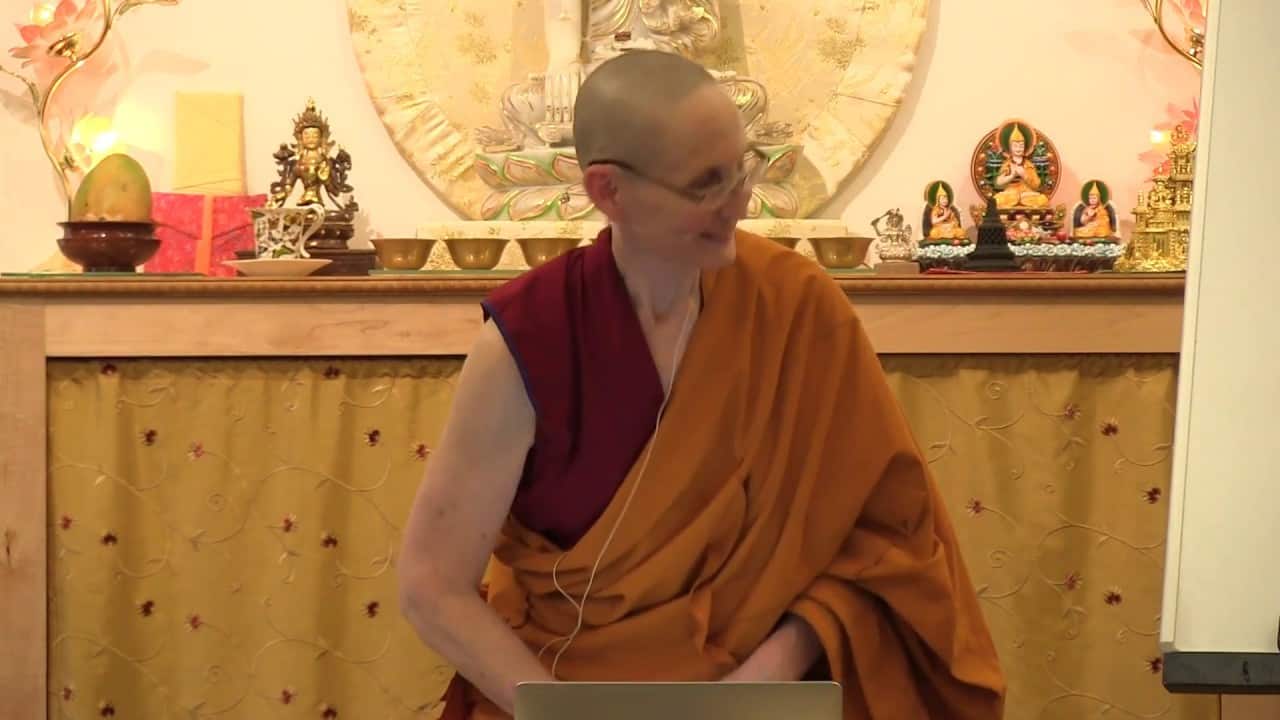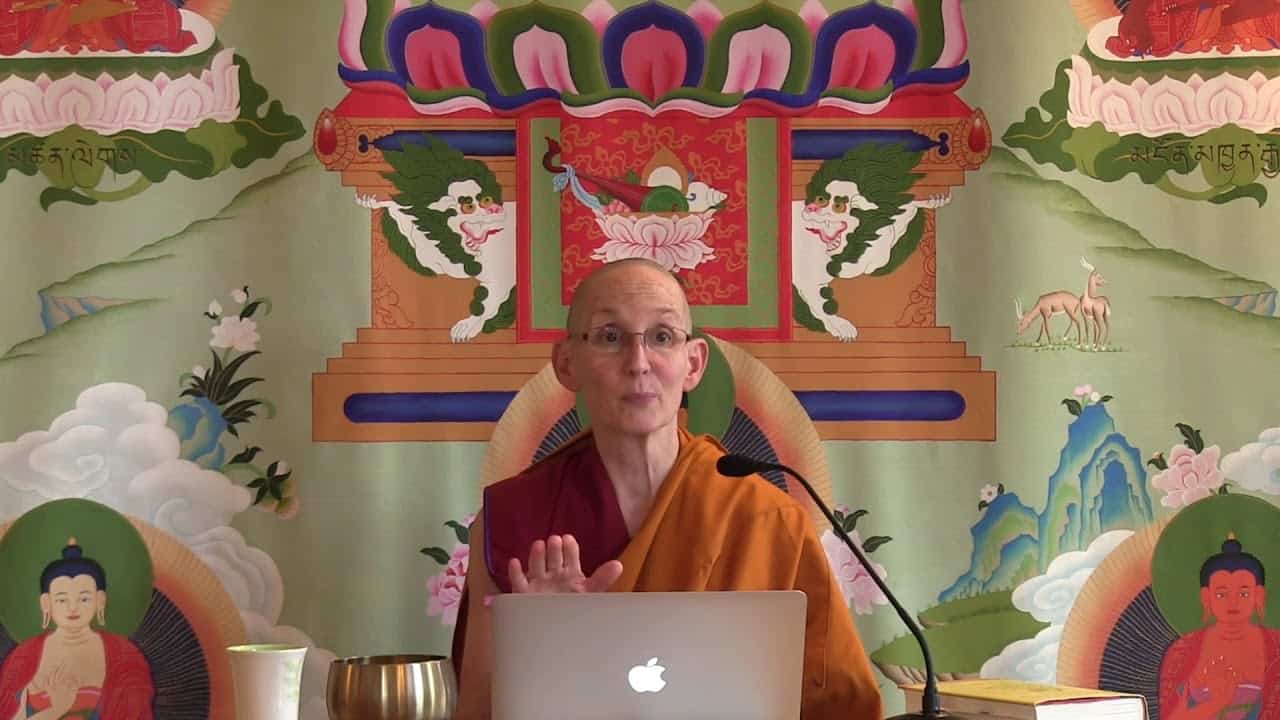Anger as exaggeration
Anger as exaggeration
A series of talks given at Tushita Meditation Centre in Dharamsala, India, on August 30, 2018.
Anger is—I’m giving a very broad definition, okay—it’s a mental factor that is again based on exaggeration, but here you’re exaggerating the bad qualities of someone or something. So you want to push them away, or destroy them, some way of separating yourself from the object or the person, but again it’s based on exaggeration. Now, when we’re angry, we never think we’re exaggerating. When I’m angry, that person is horrible 100 percent. It’s all their fault. I have no exaggeration. I am seeing this realistically. Okay. So this is our problem. If we think like that then we’re never going to be able to deal with our anger, because we’re always right. So, we have to really look at the anger and see how it’s based on exaggeration, how it is supported by self-centeredness, you know.
What are the things I get angry at? They’re all things that are related to me. If somebody comes in this room and calls you a name and chews you out, I don’t get upset. If they say the same words to me, I get very upset. What’s the difference? That person’s behavior is exactly the same. Well, it’s because it’s directed towards me, and I’m clearly the center of the universe and so if somebody, you know, insults me or criticizes me, this is, you know, verging on national disaster and I’d better take action about it, but if they criticize you, they’re just exaggerating, they’re in a bad mood, they’re venting. You’re my friend, I say, “It’s okay, just ignore them.” Or, if I don’t like you and they chew you out, then I’m going, “He deserved it.” So you can see that my reaction is totally colored by my own self-centeredness. So there you can see anger is not based on any kind of objective reality at all.
Oh, but how to work with anger? Actually, let’s not talk about transforming it. How to work with it, okay. Shantideva: Chapter 6 of “Guide to a Bodhisattva’s Conduct”–perfect. His Holiness has a book called Healing Anger that’s based on that chapter. I have a book called Working With Anger that’s based on that chapter and you know, all these three resources have so many techniques, but the thing is we have to practice the techniques before we’re in the situation where something is upsetting to us.
Venerable Thubten Chodron
Venerable Chodron emphasizes the practical application of Buddha’s teachings in our daily lives and is especially skilled at explaining them in ways easily understood and practiced by Westerners. She is well known for her warm, humorous, and lucid teachings. She was ordained as a Buddhist nun in 1977 by Kyabje Ling Rinpoche in Dharamsala, India, and in 1986 she received bhikshuni (full) ordination in Taiwan. Read her full bio.


